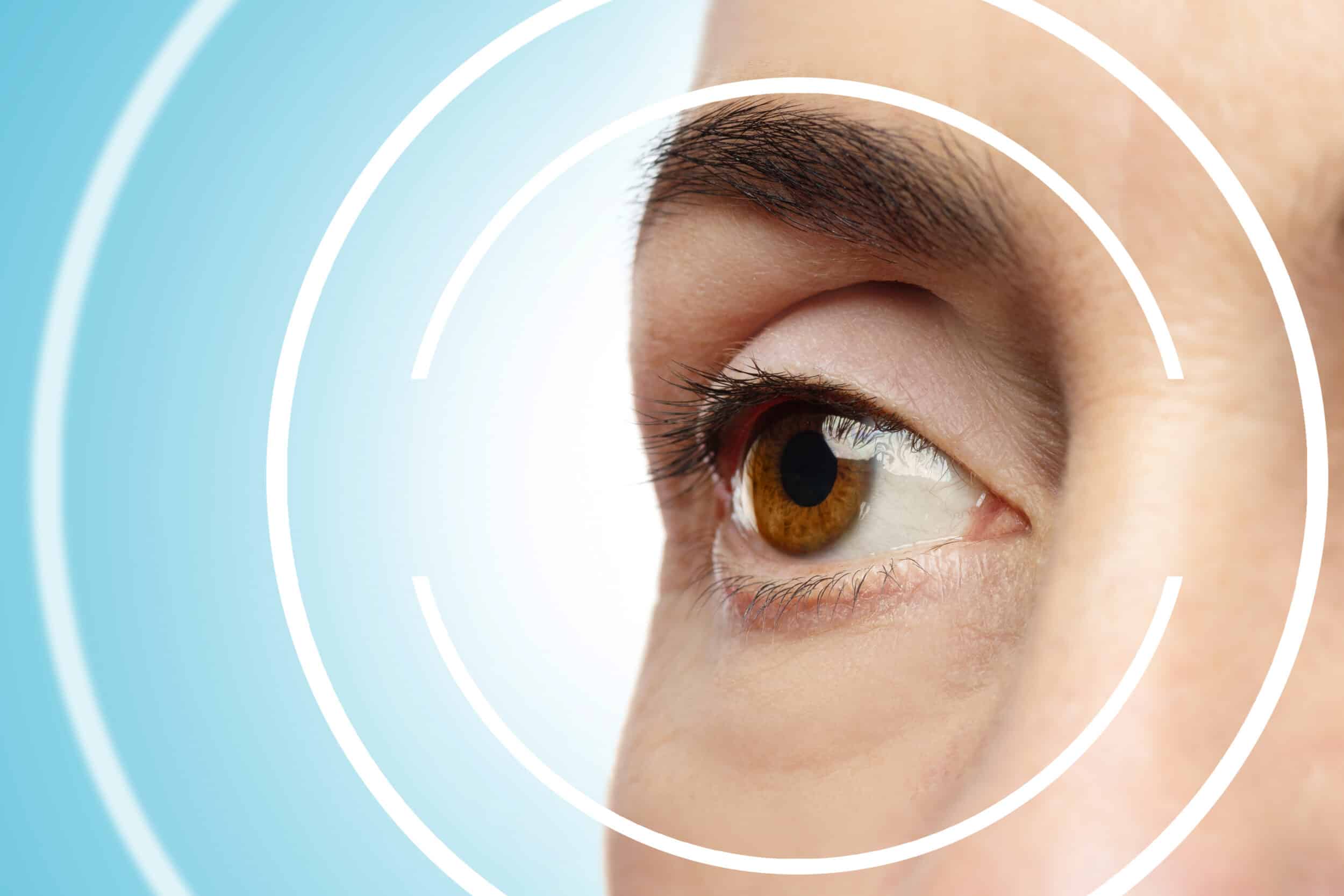If you suffer with bad eye sight and are considering LASIK, do not hesitate to call Dr. Jean E. Keamy for a personalized laser eye surgery consultation! Dr. Keamy can answer your questions and help you determine whether you are a candidate. Dial 508.836.8733 to reach our Westborough, MA office today!
What is LASIK Eye Surgery?
LASIK Eye Surgery is a refractive procedure that reshapes the cornea to correct nearsightedness, farsightedness and astigmatism. LASIK offers many improvements over other refractive surgery procedures. These include little or no post-operative discomfort, immediate vision improvement, and the ability to drive or return to work quickly-sometimes as soon as the next day. Most patients require no corrective eyewear after surgery although patients over 40 may require reading glasses.
Benefits of LASIK
Patients who undergo LASIK achieve clear vision without the need for glasses or contact lenses. LASIK offers many improvements over other refractive surgery procedures like:
- Little to no post-operative discomfort.
- Immediate vision improvement.
- Ability to drive or return to work quickly-sometimes as soon as the next day.
LASIK Eye Surgery Candidates
While LASIK surgery is very popular, it’s not right for everyone. There are certain criteria a potential patient must meet to be eligible for LASIK:
- Eye health — Conditions such as pink eye, dry eye syndrome, eye infections, or any eye injuries must resolve before you can have LASIK. Cataracts and glaucoma also usually prevent a candidate from qualifying for LASIK.
- Cornea thickness — LASIK improves vision by reshaping the front surface of the eye, the cornea. Your cornea needs to be thick enough to accommodate this reshaping.

- Prescription limits — LASIK results aren’t as predictable if the patient has a very high prescription, whether it be for nearsightedness, farsightedness, or astigmatism. Other vision correction surgeries may be better in these cases.
- Pupil size — Patients with overly large pupils can be at an increased risk for side effects such as halos, glare, and starbursts in low light.
- Age — Patients generally need to be at least 18, in some cases 21. This is mostly because vision continues to change in younger people.
- Stable vision for a year — This is related to the age issue. The patient’s vision needs to be at a stable prescription for at least a year prior to undergoing LASIK. The eyes need to settle in to their prescription.
- Pregnancy — LASIK is not available to women who are pregnant or nursing. This is because hormonal changes during these times can alter the shape of the cornea.
- Overall health — Certain degenerative conditions and autoimmune diseases can preclude a person from having LASIK. This is due to the body’s decreased healing ability.
Read what our patients are saying!
"I can see clearly now. Had LASIK Eye Surgery. Everything went as smooth as can be. Dr. Keamy and her staff were all helpful, polite, and clear. They explained my options, the procedure, risks, and costs clearly. Within a few weeks of recovery my eyesight was better than it ever was with contacts or glasses. I recommend them highly."
Is LASIK safe?
LASIK is very safe if you are properly screened for adequate corneal thickness and corneal shape.
What happens before laser eye surgery?
Prior to any LASIK procedure, Dr. Keamy performs a thorough eye exam to make sure the patient’s eyes are healthy enough for the procedure. She checks the shape and thickness of the cornea, the pupil size, your refractive errors, and the overall health of your eyes. Since dry eye can be a risk with LASIK, she will check the moistness of your eyes and may recommend a precautionary treatment to lower your risk.
For specifics of the surgery, she will use a corneal topographer to measure the curvature and to create a map of your cornea. She will do a wavefront analysis, where light waves are sent through your eye to give a precise map of any aberrations affecting your vision.
If you wear contact lenses, Dr. Keamy will tell you when you will need to stop wearing them prior to your LASIK procedure. This is usually around two weeks prior to your procedure. The reason for this is that wearing contact lenses can alter the natural shape of your cornea.
LASIK Surgery Procedure
Before surgery begins, numbing eye drops are applied to your eye to prevent any discomfort during the procedure. The surgeon will then gently prop your eyelids open using an instrument called a lid speculum, a device used to stabilize the eye. It is normal to feel mild pressure. You will be asked to look at a target light for a short time while he or she watches your eye through a microscope as the laser sends pulses of light to your cornea.
Using targeted excimer laser beam energy, the LASIK procedure reshapes corneal tissue to correct refractive errors. This is done so that light rays are focused more precisely on the retina to produce clear, sharp vision.
LASIK Recovery
Usually it only takes a few days to recover from LASIK eye surgery. Most people return to work 2 -3 days after surgery. Vision continues to improve for the next 1-3 months.
Laser Eye Surgery Results
After LASIK surgery, it usually takes several hours for things to become clearer. After the first 4 hours, each subsequent hour brings clearer vision. In fact, most patients are able to drive the next day.
LASIK Patient Testimonial
"Dr Keamy provided Lasik surgey for me over 5 years ago and it was the best decision I have ever done. She was excellent and the staff is so curtious and professional."
Can LASIK be reversed?
Yes and no. If someone has a mild prescription and there is enough cornea, a second procedure can be performed. In some cases, the corneas are too thin and cannot be retreated.
Is LASIK permanent?
LASIK Eye Surgery is not permanent. As long as your myopia or hyperopia, your vision after LASIK should remain stable. However, as we age, cataracts or cloudy lenses develop. The cataracts will change the prescription and essentially undo the LASIK surgery. The cataracts can be removed to restore vision.
LASIK Risks
Complications such as vision loss are very rare with LASIK, but there are certain side effects that are somewhat common, including dry eye and temporary vision issues. Risks with LASIK:
- Dry eyes — LASIK surgery causes a temporary decrease in tear production. This can last for up to six months; eye drops can help manage this.
- Glare, halos, double vision — Your night vision could be affected after your surgery, with halos and glare showing around bright lights. Double vision can develop, as well. These usually last for a period from a few days to a few weeks.

- Under correction or overcorrection — If the laser removes too little or too much tissue, you may not have the correction you desire. This can be easily addressed with a second procedure for undercorrection.
- Astigmatism — If tissue removal is uneven, it can create astigmatism.
- Flap problems — The flap created to access the cornea can develop complications such as infection or unusual epithelium growth.
- Vision loss — In very rare cases, patients have experienced vision loss due to surgical complications.
What Is Contoura® Vision?

Dr. Keamy is trained on and offering Contoura® Vision, also known as topography-guided LASIK or Contoura Lasik. This state-of-the-art laser eye surgery procedure corrects vision by reshaping the cornea.
Contoura Vision maps the unique contours of the cornea using advanced topography technology. This detailed map allows for a personalized correction. It addresses refractive errors (like nearsightedness and astigmatism) and minor corneal irregularities.
Contoura Vision Benefits
Contoura offers many benefits compared to traditional LASIK, including:
- Personalization: Traditional LASIK uses a one-size-fits-all approach. Contoura creates an individualized treatment plan.
- Precision: The topography-guided system enables surgeons to perform more precise corneal reshaping. This precision helps achieve better clarity of vision. It can also reduce issues like glare and halos, especially at night.
- High Success Rates: Over 92% of patients achieve 20/20 vision or better after undergoing Contoura LASIK. This success rate is due to the procedure's ability to address significant refractive errors and minor corneal irregularities affecting visual acuity.
- Rapid Visual Improvement: Most patients notice improvements after the procedure. They also see significant improvement within the first 24 hours; however, the improvements can continue for up to 3 months after the procedure.
- Minimal Downtime: Contoura's recovery period is generally very quick. Many patients can return to work and daily routines within a day or two.
- Improved Contrast Sensitivity: Patients often experience better contrast sensitivity. This helps distinguish objects against backgrounds, making night driving and other activities in dim light safer and more comfortable.
Why Choose Keamy Eye & Laser Centre?
At Keamy Eye & Laser Centre, you can trust that you are in expert hands. Dr. Jean Keamy, our founder, is a board-certified ophthalmologist and a distinguished member of the American Academy of Ophthalmology, the New England Ophthalmology Society, and Women in Ophthalmology. Her extensive training and experience in the field of ophthalmology are a testament to the quality of care you can expect at Keamy Eye & Laser Centre.
We are committed to offering superior care in a friendly and personalized environment. Our practice is dedicated to ensuring the health and well-being of your eyes. From the latest technology to our pleasant surroundings, every aspect of our facility is designed to enhance your comfort and confidence in your treatment.
Schedule Your LASIK Consult in Westborough, MA
If you are interested in learning more about LASIK Eye Surgery, schedule a consultation in our Westborough office. You can also submit an online contact form and we'll get back to you at our earliest convenience.
Contact us to learn more about LASIK
